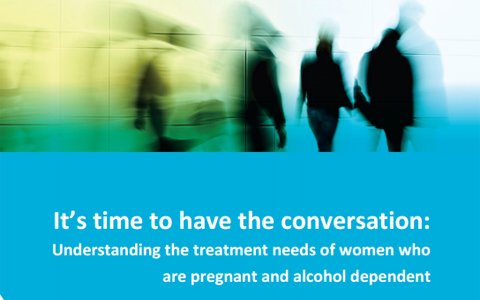It’s time to have the conversation: Understanding the treatment needs of women who are pregnant and alcohol dependent
Societal norms on alcohol use are contradictory and conflicting. Whilst for the most part widely available and accepted, alcohol consumption is regarded with disapproval and shame during pregnancy. This contradiction and associated stigma places unnecessary guilt on women and is in the large part responsible for women’s lack of disclosure of drinking during pregnancy.
Such is the stigma and guilt associated with alcohol use during pregnancy that only a minority of pregnant women with alcohol use disorders access treatment. There are also large barriers to treatment that include the fear of losing custody of children and practical barriers associated with the availability of services, access, transport, and childcare.
This research reports on information gathered from 11 semi-structured qualitative interviews with clinicians that treat pregnant women with problematic alcohol use. The clinician interviews supported evidence from the literature review reflecting that whilst the prevalence of alcohol use disorders in the population is higher than disorders related to illicit drugs, the reverse is noted in specialist treatment services: problematic alcohol use in pregnant women is rarely seen. The interviews with the key stakeholders highlight that despite work aimed at improving the detection of alcohol use, screening and referral rates remain low.
The authors put forward the gold standards for the treatment of alcohol dependence in pregnancy, incorporating the following principles:
- That standardised screening is undertaken of all pregnant women on their alcohol use
- That all pregnant women who screen positively for alcohol-use disorders should be offered access to treatment
- That all pregnant women who are alcohol dependent should be offered extended hospitalisation post-delivery and birth with help and support
- That treatment of pregnant women who are alcohol dependent should be undertaken by a multidisciplinary team.












